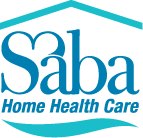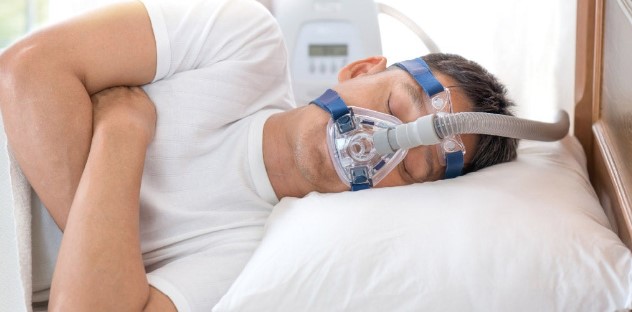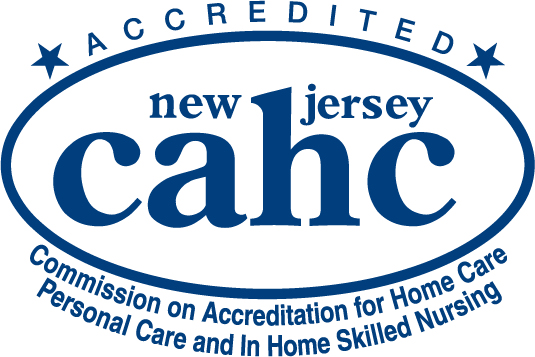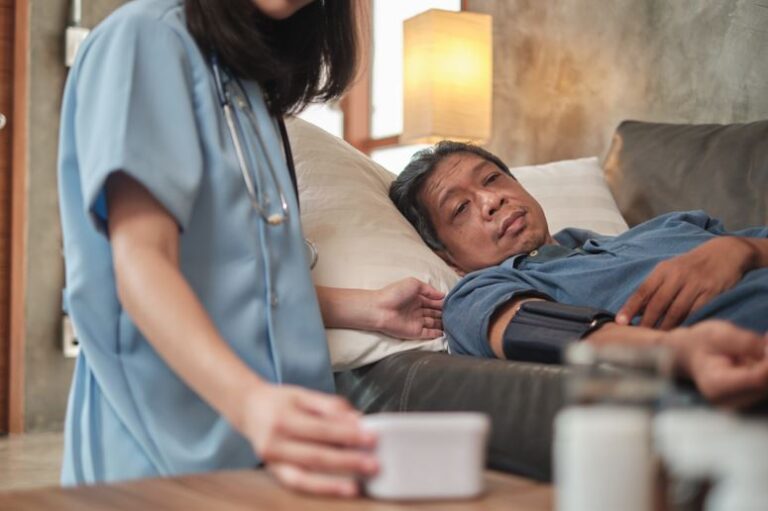
Sleep apnea is a common sleep disorder that affects people of all ages, but its prevalence increases with age. According to the National Sleep Foundation, about half of all seniors over the age of 65 suffer from some form of sleep apnea.
This condition can greatly impact the quality of life for senior citizens, as it often leads to daytime fatigue, trouble concentrating, and increased risk for health problems such as high blood pressure and heart disease.
As caregivers and healthcare professionals, it is important to recognize the signs of sleep apnea in elderly patients in order to properly manage and treat this condition. Here are some common signs of sleep apnea in seniors, lifestyle factors that may influence its severity, and ways that home nurses and at home caregivers can provide support for patients with sleep apnea.
What is Sleep Apnea?
Sleep apnea is a sleep disorder characterized by pauses in breathing or shallow breathing during sleep. These pauses can last for a few seconds to several minutes and can occur multiple times throughout the night, disrupting the normal sleep cycle. There are three main types of sleep apnea: obstructive, central, and complex.
Obstructive sleep apnea (OSA) is the most common type and occurs when the muscles in the throat relax, causing an obstruction in the airway. Central sleep apnea (CSA) is less common and happens when the brain doesn’t send signals properly to control breathing during sleep. Complex sleep apnea, also known as treatment-emergent central sleep apnea, is a combination of both OSA and CSA.
Plus, it is important to note that sleep apnea can range from mild to severe and may also be accompanied by other underlying health issues. It is essential for seniors to receive proper diagnosis and treatment in order to improve their overall health and quality of life. Let’s take a closer look at the signs of sleep apnea in elderly patients.
Signs and Symptoms
The most common sign of sleep apnea is loud, chronic snoring, which may be accompanied by gasping or choking sounds during sleep. However, not all seniors with sleep apnea will experience this symptom. Other signs and symptoms to watch for include:
- Frequent awakenings during the night: Due to the interruptions in breathing, seniors with sleep apnea may wake up frequently throughout the night. Additionally, they may also experience a dry mouth or sore throat in the morning. Also, since sleep apnea can disrupt the normal sleep cycle, seniors with this condition may feel tired and groggy during the day.
- Daytime fatigue: As mentioned earlier, sleep apnea can cause daytime fatigue and lead to trouble concentrating or staying awake during daily activities. This can greatly impact the overall quality of life for senior citizens. Also, since sleep apnea is often accompanied by poor sleep quality, seniors may also experience mood changes and irritability.
- High blood pressure and heart problems: Sleep apnea has been linked to an increased risk for health issues such as high blood pressure, stroke, and heart disease. It is important for seniors with sleep apnea to receive proper treatment in order to prevent these potential complications.
- Difficulty breathing during sleep: Some seniors with sleep apnea may experience difficulty breathing, shortness of breath, or feelings of being unable to catch their breath while asleep. This can be a more severe symptom and should be addressed immediately.
- Memory and cognitive issues: Since sleep apnea can impact the brain’s ability to receive proper oxygen, it may also affect memory and cognitive function in seniors. They may have trouble remembering things or experience difficulty with concentration and decision-making.
If you notice any of these signs or symptoms in an elderly loved one, it is important to consult a healthcare professional for proper evaluation and diagnosis. Early detection and treatment can greatly improve the quality of life for seniors with sleep apnea.
How to recognize the signs of sleep apnea in elderly patients
While some signs and symptoms of sleep apnea may be obvious, others may not be as easily recognizable. Caregivers and healthcare professionals should pay close attention to the sleeping patterns and behaviors of senior patients in order to identify potential signs of sleep apnea. Some ways to recognize the signs include:
It is important to ask the patient if they have experienced any of the symptoms mentioned above or if their partner has noted any abnormal breathing patterns during sleep. Additionally, caregivers can also monitor the patient’s sleeping habits and behaviors, such as snoring or gasping for air.
It is important to consider other risk factors that may increase the likelihood of sleep apnea in seniors, such as being overweight, having a family history of sleep disorders, or using certain medications. By keeping a close eye on these signs and risk factors, caregivers and healthcare professionals can work together to provide proper diagnosis and treatment for elderly patients with sleep apnea.
Lifestyle Factors that can Influence Sleep Apnea
There are also certain lifestyle factors that can influence the severity of sleep apnea in senior citizens. These include:
Obesity
Obesity is a major risk factor for sleep apnea as excess weight can put pressure on the airway, leading to obstruction and difficulty breathing during sleep. This is especially relevant for seniors who may have gained weight over the years or have existing health conditions that contribute to weight gain. Maintaining a healthy weight through diet and exercise can help improve symptoms of sleep apnea in obese seniors.
Obesity is linked to other health issues as well, such as high blood pressure and heart disease, which can further exacerbate sleep apnea in elderly patients. Overweight seniors should take steps to manage their weight and also receive proper treatment for any underlying conditions.
Smoking
Smoking has been found to increase the risk of developing sleep apnea in seniors. This is because smoking causes inflammation and swelling in the airway, making it more difficult to breathe properly during sleep. It can also lead to an increase in mucus production, further obstructing the airway.
Smoking has also been linked to other health issues such as heart disease and lung disease, both of which can also contribute to sleep apnea in elderly patients. Quitting smoking or avoiding secondhand smoke can greatly improve the overall health and quality of life for seniors with sleep apnea.
Alcohol Consumption
Consuming alcohol before bedtime can also worsen sleep apnea symptoms in seniors. Alcohol relaxes the muscles in the airway, making it more likely for the airway to collapse or become obstructed during sleep. This can lead to more frequent awakenings and interruptions in breathing.
Alcohol can also disrupt the normal sleep cycle, leading to poor quality sleep and daytime fatigue in seniors with sleep apnea. It is important for seniors to limit their alcohol consumption or avoid drinking close to bedtime in order to improve their overall sleep quality.
Sedentary Lifestyle
A sedentary lifestyle can contribute to the development of sleep apnea in elderly individuals. Lack of physical activity can lead to weight gain, which as mentioned earlier, is a major risk factor for this condition. Additionally, regular exercise has been found to improve symptoms and severity of sleep apnea in seniors. Exercise can help improve overall respiratory function and strengthen the muscles in the airway, reducing the likelihood of obstruction during sleep.
Seniors who lead a sedentary lifestyle should try to incorporate physical activity into their daily routine, even if it is just light exercise such as walking or stretching. This can greatly benefit their overall health and potentially improve symptoms of sleep apnea.
Medication use
Certain medications may also contribute to worsening symptoms of sleep apnea in older adults. These include sedatives, tranquilizers, and opioid pain medications. These types of drugs can relax the muscles in the throat, making it more likely for the airway to collapse during sleep.
Furthermore, some medications can also disrupt the natural sleep cycle and lead to daytime drowsiness, which can exacerbate symptoms of sleep apnea. It is important for seniors to discuss their medication use with their healthcare provider and see if there are alternative options that may be less likely to worsen their sleep apnea symptoms. Careful monitoring and adjustments in medication regimens may be necessary in order to properly manage sleep apnea in elderly patients.
How A visiting home nurse can help
For seniors with sleep apnea, a visiting home nurse can provide valuable support and assistance. A home nurse can monitor the patient’s sleeping patterns and behaviors, as well as provide education on the signs and symptoms of sleep apnea.
Additionally, a home nurse can work with the patient to develop healthy lifestyle habits such as proper diet and exercise to manage weight and improve overall respiratory function. They can also assist with medication management and make necessary adjustments to ensure optimal treatment for sleep apnea.
A home nurse can also provide emotional support for both the senior patient and their caregiver, helping to alleviate any stress or anxiety related to managing sleep apnea. They can also offer resources and referrals for support groups or specialized care facilities if needed.
What Is A Visiting Home Nurse?
A visiting home nurse is a licensed medical professional—usually a Registered Nurse (RN) or Licensed Practical Nurse (LPN)—who provides medical care to patients in their homes. This service is often arranged through a home health agency, hospital discharge plan, or doctor’s order, especially for individuals recovering from surgery, managing chronic illnesses, or requiring ongoing medical monitoring.
Services Provided by a Visiting Home Nurse:
- Medication management (including injections or IV therapy)
- Wound care (e.g., dressing changes for surgical or pressure wounds)
- Monitoring vital signs (blood pressure, heart rate, etc.)
- Chronic condition management (e.g., diabetes, COPD)
- Post-surgical recovery assistance
- Patient and caregiver education (how to manage care at home)
How It Differs from Other Home Care:
| Type | Provided By | Focus | Example Services |
|---|---|---|---|
| Visiting Nurse (Home Health Care) | RN or LPN | Medical | IV therapy, post-op care, wound dressing |
| Home Health Aide | Certified Aide | Basic health assistance | Bathing, grooming, help with mobility |
| Non-Medical Home Care | Caregiver/Companion | Daily living support | Cooking, cleaning, companionship |
Visiting nurses are often covered by Medicare or private insurance when prescribed by a doctor, especially after hospitalization.
NJ Home Care Services Help Patients With Sleep Apnea
If you or a loved one in Toms River, NJ is in need of home health care services, contact Saba Home Health Care. We offer a wide range of services including transitional care, 24-hour live-in care, skilled nursing services, and more. Our certified home health aides are trained to provide personalized and compassionate care for all ages and conditions.
At Saba Home Health Care, we strive to be at the forefront of the home health care industry by constantly improving our services and staying up-to-date with the latest advancements. Our family-owned company is dedicated to providing top-quality care for our clients in Monmouth and Ocean County, NJ.
Schedule a consultation with one of our experienced home health care professionals. Let us help you and your loved ones live a happier and healthier life at home.
sleep apnea is a common yet serious condition
It can lead to numerous health complications and should be properly managed in order to improve overall quality of life. By addressing risk factors such as obesity, smoking, alcohol consumption, sedentary lifestyle, and medication use, seniors can see an improvement in their sleep apnea symptoms.
Having the support of a visiting home nurse can also greatly benefit seniors with sleep apnea by providing personalized care and assistance in managing their condition. If you or a loved one in Toms River, NJ is in need of home health care services for sleep apnea or any other condition, contact Saba today for compassionate and professional care. We are committed to helping seniors live comfortably and safely in the comfort of their own home.
Call 732-797-0700 or Contact us today For a Consultation about New Jersey home health care services
FAQs
Do I need a prescription for home health care services?
No, you do not typically need a prescription for home health care services. However, some insurance plans may require one for coverage or reimbursement purposes. It is best to check with your insurance provider to determine their specific requirements.
What types of services does Saba offer?
Saba offers a variety of home health care services including personal care, skilled nursing, therapy services, and respite care. Our team of certified professionals can assist with daily tasks such as bathing, dressing, medication management, wound care, physical therapy, occupational therapy, and more.
How often will the home nurse visit?
The frequency of home nurse visits will depend on the individual needs and care plan for each client. Some clients may require daily visits, while others may only need weekly or bi-weekly check-ins. Our team will work with you to determine the best schedule for your specific needs.




